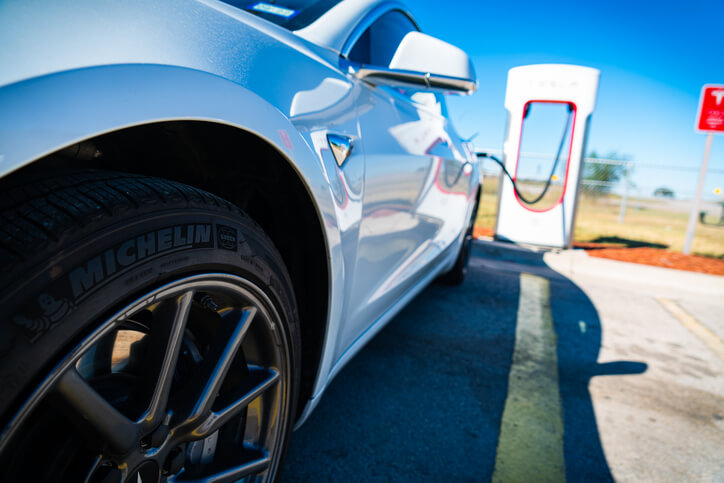The Impact of EV Tires: What Students in Hybrid Mechanic Training Should Know
As electric vehicles (EVs) become more common, hybrid and electrical mechanic training has seen a growing need for tires specifically engineered to meet their unique demands.
Electric vehicle tires differ from standard tires in several important ways. They are designed to handle the extra weight of EV battery packs and the powerful torque of electric drivetrains while maintaining efficiency and a quiet ride. Failing to account for these factors can lead to faster tire wear, reduced range, and increased noise. That’s why understanding EV tires is crucial for future mechanics.
Why Do EVs Need Special Tires?
Electric vehicles (EVs) need specialized tires mainly because of their weight and torque. The large battery packs often make EVs heavier than gasoline cars, putting extra stress on tires and requiring a stronger grip for safe braking. Using standard tires can lead to faster wear or safety issues.
EVs also deliver instant torque, meaning they accelerate quickly from a standstill. This sudden force can wear out regular tires fast, so EV tires are built with reinforced materials and tougher rubber to maintain traction and durability.
Beyond weight and torque, EV tires are designed for quiet performance and efficiency. Because electric motors produce minimal noise, tire sound becomes more noticeable, so manufacturers counter this with special tread patterns or foam layers. EV tires also have low rolling resistance to improve range by reducing friction.
Key Features of EV-Specific Tires
EV tires are specially designed to handle the unique demands of electric vehicles.
- Heavier loads: Because EVs carry large battery packs, their tires use reinforced structures and higher load ratings, often labeled “XL,” to support the added weight.
- High torque: Electric motors deliver instant torque, so EV tires use tougher rubber compounds and tread designs that resist wear and maintain traction.
- Low rolling resistance: To extend driving range, EV tires minimize friction with the road, improving efficiency while still ensuring safe grip.
- Noise reduction: With no engine noise to mask sound, EV tires often include foam insulation or special tread patterns to keep the cabin quiet.
Overall, EV tires balance strength, durability, grip, and efficiency. Some now carry a “High Load (HL)” designation, built to support heavier EVs while improving safety and lifespan.
Maintenance Challenges and Tips for EV Tires
From a mechanic’s perspective, EV tires introduce new considerations for electric vehicle maintenance. While they need the same basic care as any tire, the added weight and torque of EVs make regular upkeep essential.

- Check tire pressure often: EVs typically require precise, manufacturer-recommended pressures to support battery weight. Low pressure increases rolling resistance, reduces efficiency, and accelerates wear, so frequent pressure checks are key.
- Rotate and align regularly: Extra weight and regenerative braking can cause uneven wear. Schedule rotations and alignments roughly every 10,000 km, or about twice a year, to keep handling safe and tire wear even.
- Choose proper replacements: Always install EV-rated tires or those with correct load and speed ratings. Using non-EV tires may shorten lifespan, increase noise, or reduce range if their load, rolling resistance, or noise ratings don’t match.
Diligent attention to tire pressure, alignment, and proper replacements ensures safer driving and longer tire life, making it a vital part of electric vehicle maintenance.
Learning About EV Tires in Hybrid and Electrical Mechanic Training
Through hybrid and electrical mechanic training, students learn essential tire servicing skills, including rotations, alignments, and how EV systems like regenerative braking and battery weight impact those services. This prepares them to recommend the right tires and perform safe, effective maintenance on electric vehicles.

Hands-on learning is vital. Students examine EV tires’ reinforced sidewalls and unique tread patterns, understanding how they differ from standard tires and when they require replacement or special care.
As electric and hybrid cars become more common, employers increasingly seek mechanics who can confidently service them. A solid foundation in hybrid and electrical mechanic training equips future technicians to manage EV-specific components, like tires, alongside other advanced automotive technologies.
Are you ready to enroll in auto mechanic school?
Contact ATC Montreal today!


